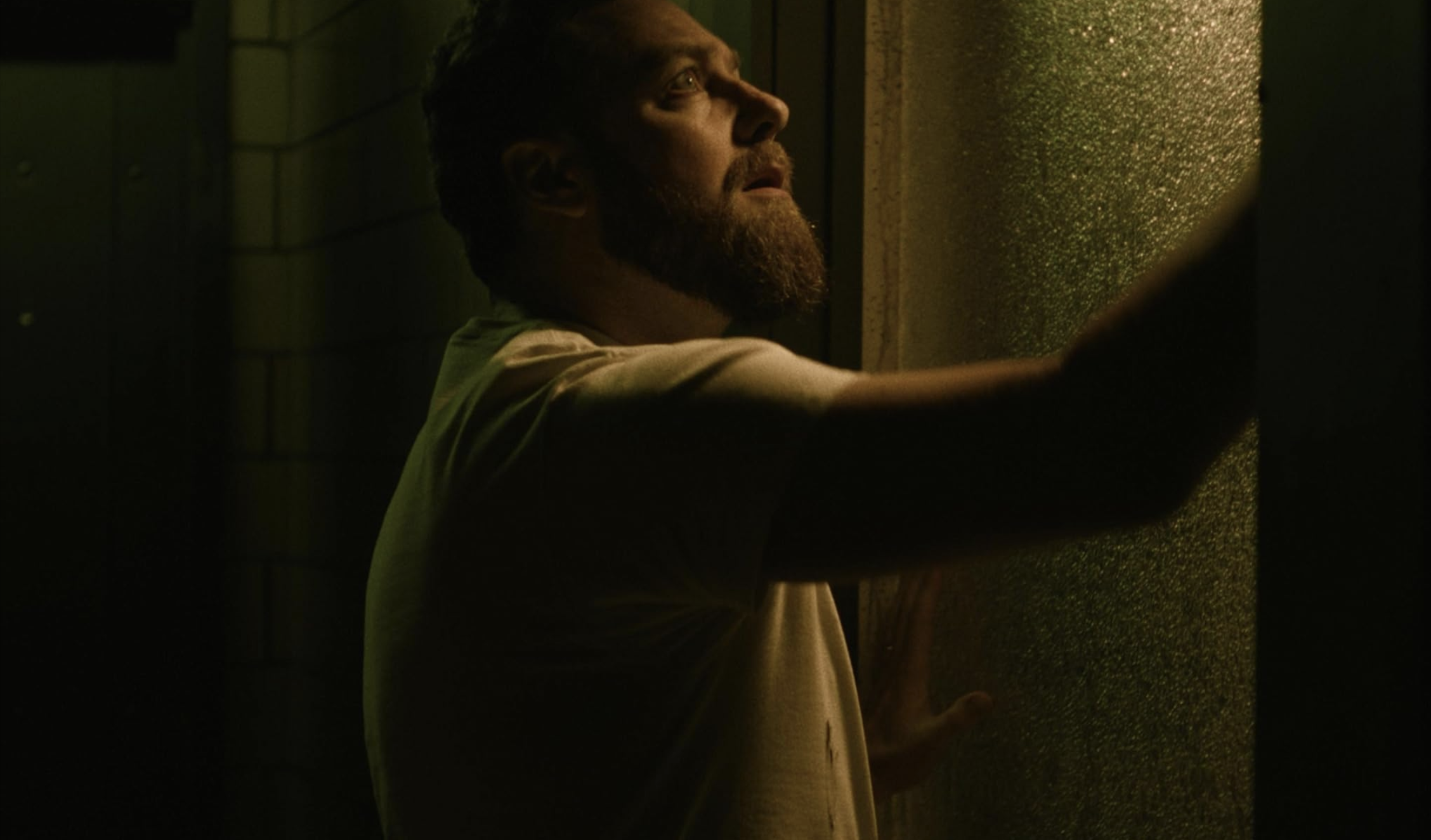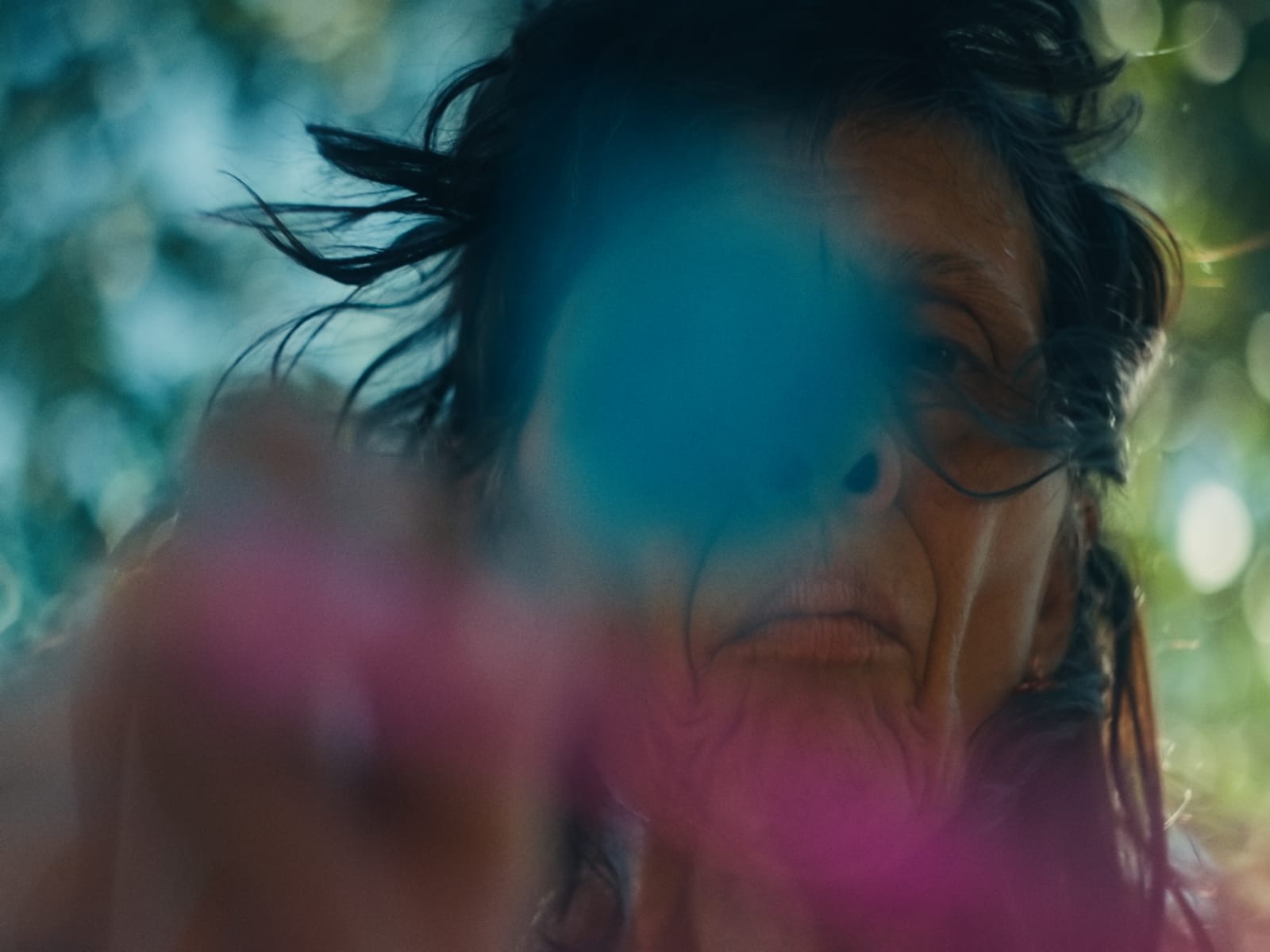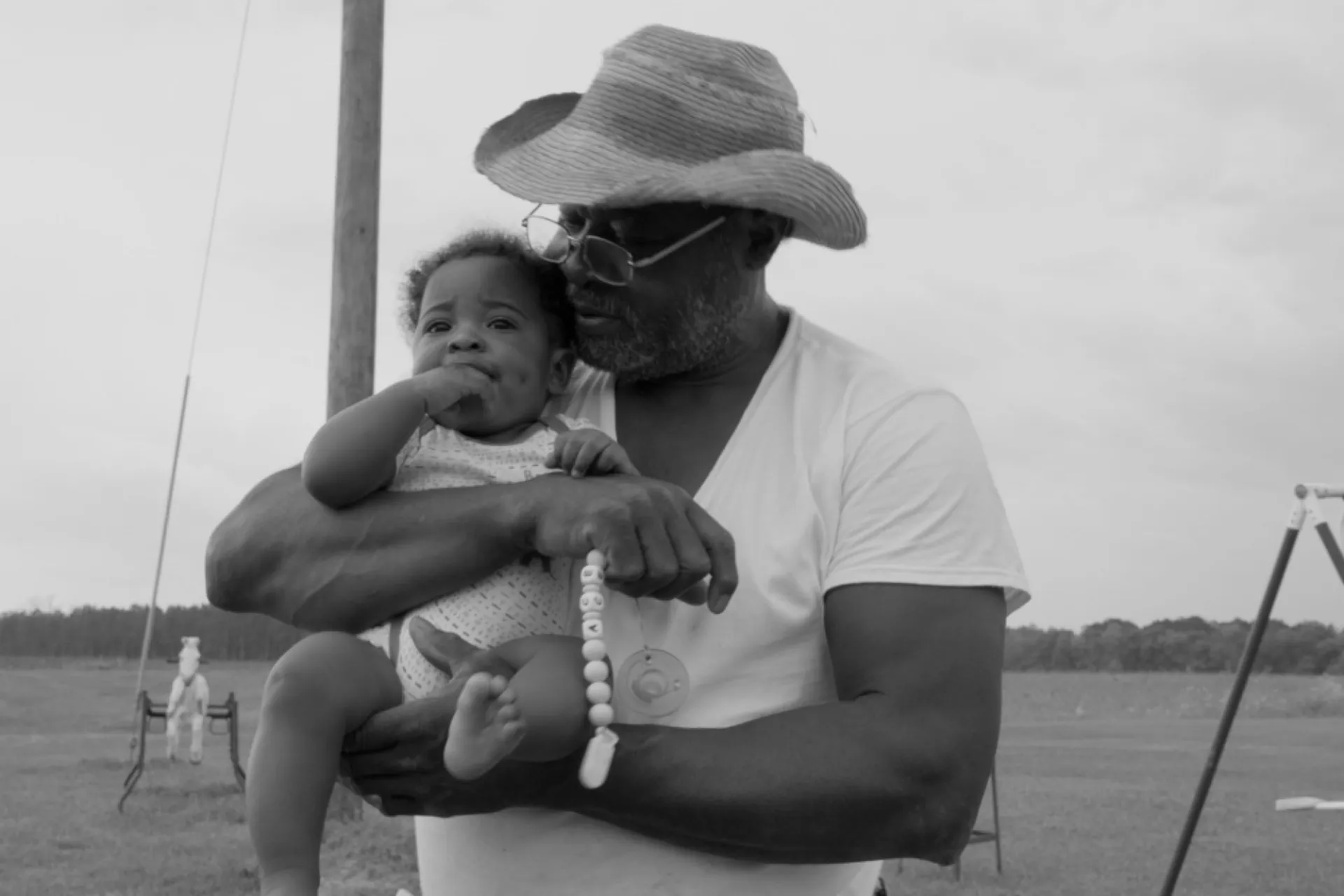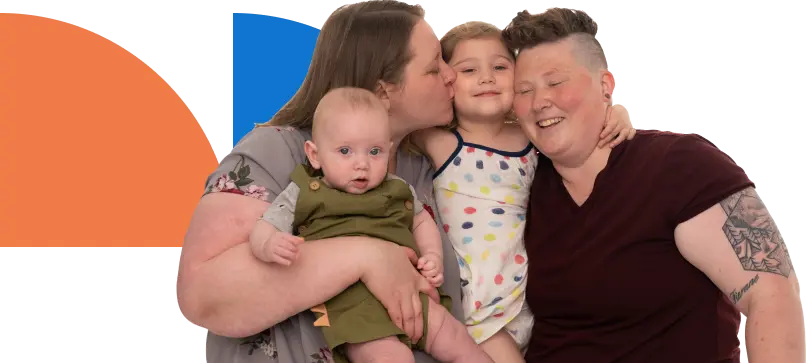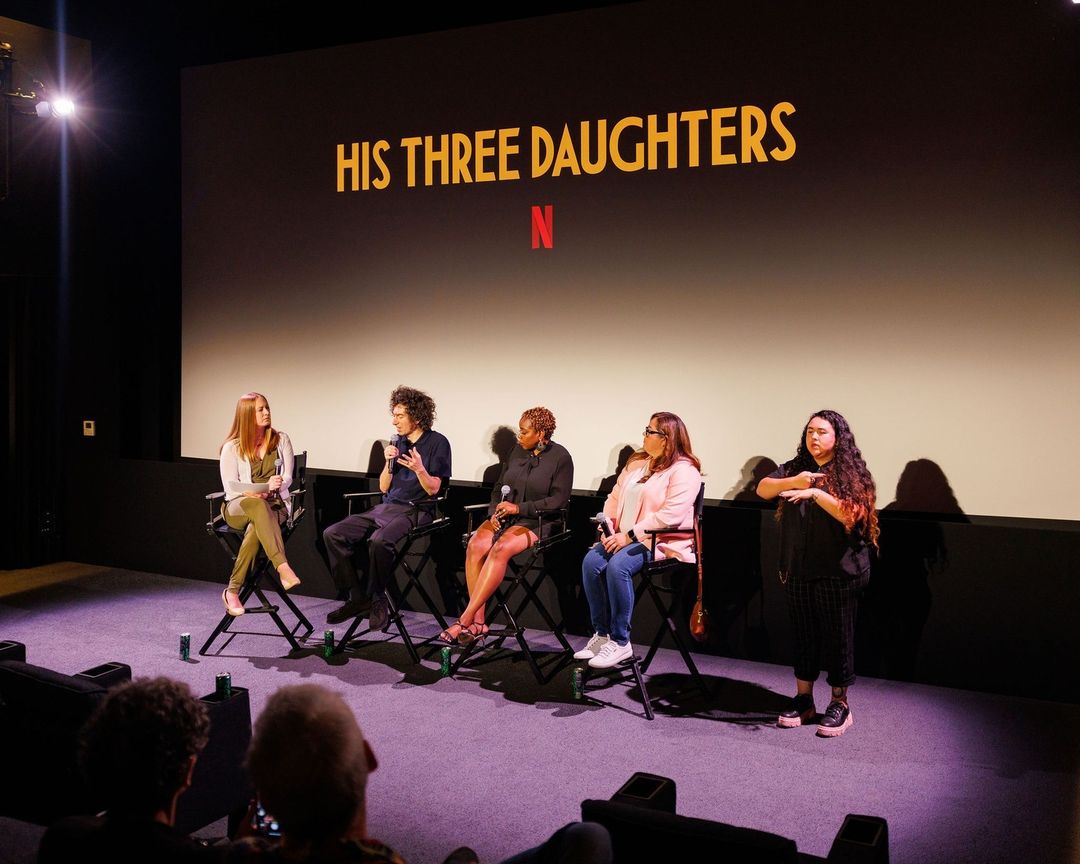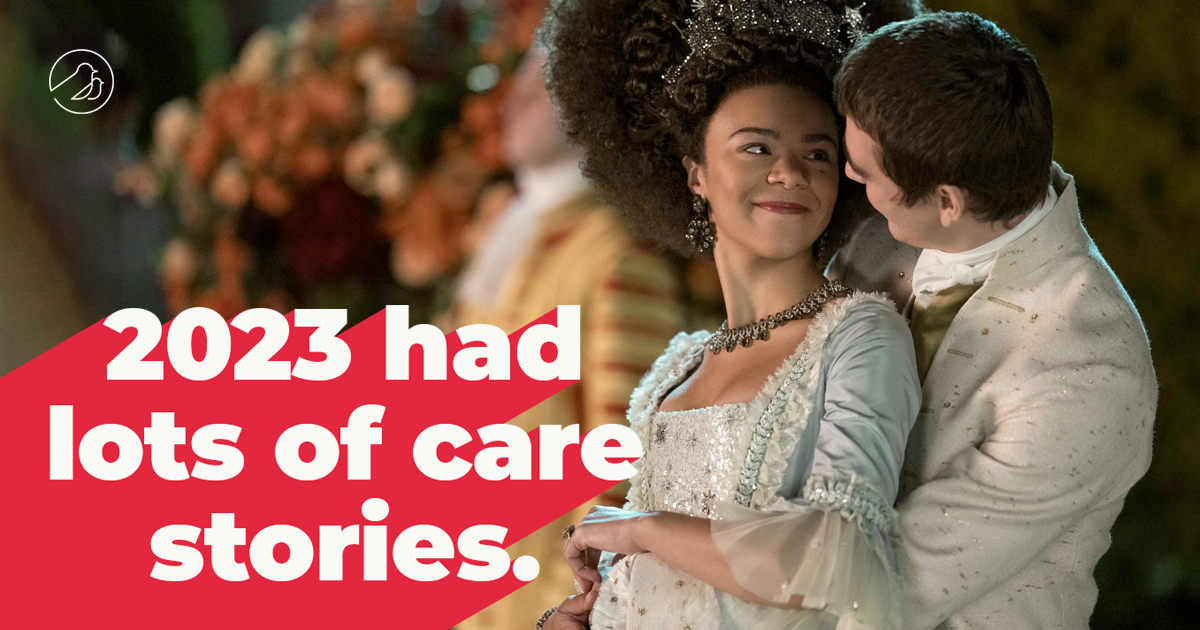
By Lyntoria Newton and Lydia Storie
2025 has been challenging for the care movement on many levels, but one bright spot is seeing more care-inclusive stories emerging on screen. While at Sundance and SXSW this year, we were thrilled to see more films centering male caregiver protagonists, including care workers, and highlighting how care takes a village. These are important shifts that challenge the stereotype that care work is only “women’s work” and normalizes the reality that we all need each other.
As “Take Me Home,” the first independent disability-forward feature film we’re executive producing, gears up for production this spring, we’re taking note of other films with significant onscreen disability representation and behind-the-scenes accessibility accommodations. Quality care is about setting up a system that allows everyone to thrive: putting that into practice on set is another meaningful way to contribute to transforming our culture.
Spotlighting male caregiving experiences
‘Fantasy Life’
Star-studded dramedy that centers on a male child care worker and female Sandwich generation caregiver navigating mental health, aging, and intergenerational relationships.
In the midst of a panic attack after losing his job as a paralegal, Sam Stein (Martin Shear) unexpectedly finds himself providing care for his psychiatrist’s three granddaughters. Sam ends up bonding with the girls’ mother, Diane (Amanda Peet), over their shared history of mental illness, and develops a crush on her. Sam joins Diane’s family to provide childcare for the summer on Martha’s Vineyard and ends up in a house with his love interest, her husband, three kids and all four grandparents — including his psychiatrist. Awkwardness and hilarity ensue, with humor helping to cut through stigmas related to gender and care and shine a light on the challenges, joys and value of professional care work. The film is looking for distribution.
‘Descendent’
Horror film that explores themes of masculinity, care and fatherhood.
Set in present-day Los Angeles, “Descendent” follows an expecting father haunted by childhood trauma. The film uses extraterrestrial abduction as a metaphor for the sometimes unsettling experience of facing impending fatherhood. Caring for another person can be transformative, and this story cleverly uses the horror genre to explore how becoming a caregiver creates an opportunity for one man to confront his fears, become vulnerable and create a different destiny. Coming to theaters in 2025.
Disability representation in front of and behind the camera
‘Deaf President Now!’
Documentary following Deaf students taking collective action as a form of community care.
This film recounts eight days of historic protests held at the nation’s oldest Deaf university, Gallaudet University, in 1988 after the school’s board of trustees appointed a hearing president over several highly qualified Deaf candidates. “Deaf President Now!” shows the power of community coming together to fight for the care they deserve, and the importance of disability representation both in front and behind the camera. The directors, one of whom is Deaf, incorporate an experimental narrative approach, called Deaf Point of View, which uses impressionist visual photography and intricate sound design to thrust the audience into the Deaf experience. The documentary reflects art’s power to connect audiences to lived experiences they might not otherwise have access to, and underscores the power of people coming together. Streams on Apple TV+ on May 16, 2024
‘Life After’
Documentary that examines how the lack of systemic care support in the U.S. and Canada affects disabled people.
Another example of disability representation on both sides of the camera, this Sundance award-winning documentary investigates what happened to disabled Californian woman Elizabeth Bouvia after she sought the “right to die.” The ensuing 1983 legal case ignited a national debate about bodily autonomy, societal fears of disability, and the value of disabled lives. “Life After” examines the false choices that many disabled people face when the larger society fails to invest in long-term care that allows all people to choose where and how they receive the care they need. In doing so, the documentary illuminates the need for a system overhaul. Read more about “Life After” in this New Yorker review.
Community coming together to provide disability care
‘Tiger’
Documentary short portraying an Indigenous family’s experience of community care
This short film follows the Tiger family as they navigate care for Dana Tiger, the family matriarch who has Parkinson’s, while trying to revitalize the iconic t-shirt company founded to honor their father, legendary Muscogee Creek artist Jerome Tiger. The multigenerational family home where Dana lives with her sister is a driving character and force in the film, with the two of them supporting one another in a significant cinematic example of how care is often reciprocal and fluid.. Notably, the film director and crew implemented a creative solution to meet Dana’s physical needs by conducting a visually striking interview with her as she lies on a diving board over a pool. Additionally, the film director and crew is also ensuring that merchandise proceeds are going directly to Dana’s care. The film is seeking distribution.
‘Seeds’
Meditative portrait of aging Black generational farmers practicing community and disability care.
This intimate, poetic documentary follows a community of Black farming families in the South caring for one another as they contend with growing challenges to pass their land and way of life to future generations. The unapologetically meditative exploration of a southern black farming community, “Seeds,” which won the 2025 Sundance U.S Grand Jury Prize for a Documentary, also captures the beautiful portrait of a farming couple in their late eighties who were lifelong caregivers for their disabled adult daughter. With so many of our onscreen care stories set in cities, this documentary, which is seeking distribution, spotlights the intricacies of care in a rural community, and the role of community in care.
‘Are You Scared To Be Yourself Because You Think That You Might Fail?’
Short film that portrays the beauty, joy and challenges of navigating trans care.
This narrative short follows Mad as they recover from top surgery. The film explores the authentic and complicated nuances of Mad expecting recovery care and emotional support from their partner but ultimately receiving it from a more surprising source: their mother. This short film, currently looking for distribution, is a rare example of onscreen care centering the LGBTQ+ experience.
On the Horizon
Other care-inclusive films that we have on our radar: “Andre is an Idiot,” “If I Had Legs I’d Kick You,” “Magic Hour,” “R&R,” “The Tallest Dwarf,” and “The Wedding Banquet.”
In 2022, we worked with the Geena Davis Institute on Gender in Media to research the landscape of care representation on TV. We found that the limited aging and disability care-related storylines that do appear lacked diversity, reinforced the idea that care was “woman’s work,” and overwhelmingly reflected the experiences of white, heteronormative nuclear families.
Three years later, it’s encouraging to see more care-related stories told with deep intention and radical authenticity. It’s in that same spirit that we are helping to produce and finance a feature-length version of critically acclaimed film, “Take Me Home,” and why we’re excited to keep working with entertainment creatives who are expanding the story of aging, disability and care.
Stay tuned for a few new films that we’ve been close to, coming soon to theaters and streaming near you: “Familiar Touch,” “Nonnas,” “Color Book,” and “Walk With Me.”
